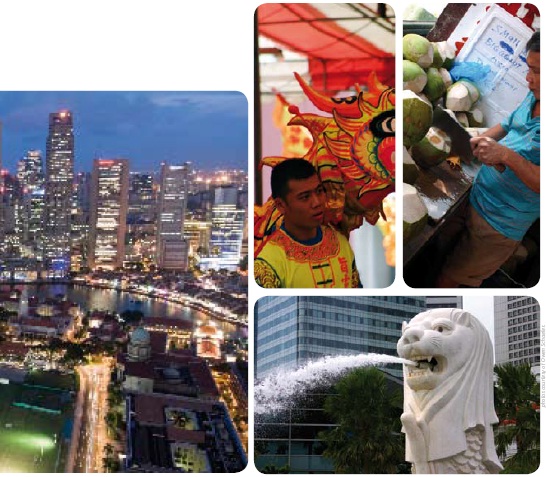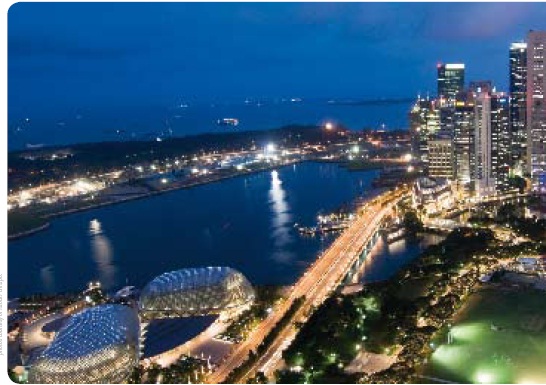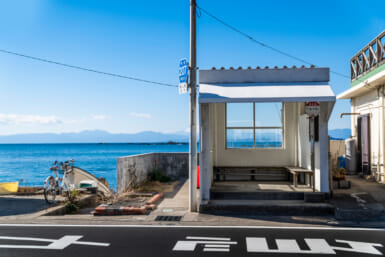The expats are heading to stay
by Marie Teather
Stopover city; Asia-lite; Asia for beginners; Singapore just never seems to get credibility as a destination by itself.
Since 1819 when Sir Stamford Raffles first set up a British trading post, the “gateway into Asia” potential of a former jungle landscape has long been reaped. Unlike other cities on mainland Asia the area has been transformed from a tiny fishing village to a melting pot of people, cultures, skyscrapers, and consumerism. Today the city-state boasts the second busiest port in the world after Rotterdam, unemployment is low, and the inhabitants affluent. At just 580 kilometers in size, it’s hard to imagine the island having any more space, nor energy, for expansion, but developments suggest quite the contrary. Singapore is growing and now the international expatriate community is moving in.
Immigrant City
Unlike most cities in the world, Singapore is a city built by immigrants, for immigrants. From the first Indian laborer, to the Chinese sailors and the British colonialists, communities from the world over have been making Singapore their home. In Japan, where anyone of none Japanese descent is referred to as gai-jin and in Thailand farang; the multi-ethnic roots by which the city was built voids such a word. Besides, the national language here is English and considering that this contribution was imported by the British, it would be strange to start referring to everyone else as ‘foreign’.
In 1965, Singapore gained independence from British rule and since then, the elder Singaporeans note positive changes to the standard of living. While trying to be self-sufficient however, the nation faced huge problems of unemployment, housing shortages, and a lack of natural resources. Between 1959-1990, during his term in office, President Lee Kuan Yew transformed Singapore into the sixth wealthiest country in the world; one that remains a serious competitor on the global economy. Yew’s methods for achieving this position have, however, come under criticism in the past, most notably the one-party rule, censorship of the media, and the government’s rather oppressive attitude towards political opposition.
Economics
Still, Singapore’s largely corruption-free government, skilled workforce, and efficient infrastructure has attracted foreign investments from more than 3,000 multi-national corporations, which in turn has created a modern economy based upon electronics, manufacturing, tourism, and financial services. Singapore is the world’s fourth largest foreign exchange trad¬ing center after London, New York, and Tokyo and with lower costs of living and running fees, this is something the securities and investment banks are taking full advantage of. In London, one major bank has recently transferred one of their divisions to Singapore; a move that is tipped to be repeated throughout other institutions.
With thousands of foreign blue-collar employees working in multi-national corporations in downtown Singapore, the city has not only been voted the most business-friendly economy in the world, but also time after time the top Asian city for expatriates based upon factors of low health risks, air pollution, crime rates, quality of transport, and health facilties.
…Singapore is a city built by
immigrants, for immigrants.
Like the foreign professionals the city attracts, the expat community is diverse and you’re as likely to meet someone from the States, Europe, Australia, and Hong Kong as you are from Nepal, Sri Lanka, the Philippians, or India. Young professionals see Singapore as a great career opportunity, and as in Japan, a lot of these expats stay into their thirties and forties to have children and buy property.
Bridget and Chris Hall, a couple in their early thirties moved to Singapore two years ago from London. They have applied for permanent residency, are soon to buy property, and express no plans to leave; “Life is really good here. Our daily routines are basically the same as when we lived in London—only we have a much higher standard of living and the weather is great all year round. Everyone speaks English here and business is booming. Why would we move back?”

House and Home
Browse any shelf of a bookstore in Singapore and you’ll inevitably come across a copy of Expat Living. This 230-page monthly publication targets the expatriate community—as do any of the English language publications in Tokyo. The difference? Pages bursting with businesses aiming not at the ‘foreign community’ simply because they can speak English or handle a gaijin, but rather because the product or service is simply suited to these families. There is no ‘them and us’ in Singapore and this is apparent in both business and in the lives led here. Surprising too, the number of interior furnishings advertisements, home renovation articles, and the number of new condos advertised for sale. Clearly expats are here, they are here to stay, and they are buying.
Buying property in Singapore is relatively easy; in fact the government wants you to buy. For apartments in non-condominium developments of less than six levels, there is no need to obtain prior approval. Mortgage rates are under two percent and with business and prices set to boom, it is a worthwhile investment. You must, however, have permanent residency, something that can be obtained in three weeks. However, it is worth remembering that should you have a son who turns 16 while in the country, he will be eligible for National service.
There is no ‘them and us’ in Singapore and this is
apparent in both business and in the lives led here.
Family Life
For most parents, bringing up children in Singapore is often easier than at home. Most expatriate families take advantage of extra home help, safe streets, and a high standard of international schools.
Like in Tokyo, the ready made communities make transitions into life and making friends relatively easy for those willing to tap into the network. www.expatsingapore.com offers advice to those about to embark on a move to the country, including tips on how to find work, where to get a haircut, how to buy a car, and which school to enroll your kids in. Other groups include an Irish association for the Irish living in Singapore, the Australian Alumni Singapore, the American Association of Singapore, and many other cross-nationality groups for various interests and hobbies, making social activities easily available.
Of course, for those who follow a career outside of the regular manufacturing or financial services, some positions will be harder to continue. Anyone with a career in TV or other media-related industries might struggle to find work. For working moms, it may mean dropping the ‘working’ from your title and for some that can be quite hard.
But how about life for those not in a couple or without a family? Here Singapore seems to come somewhat unstuck. One single, female professional tells me of the difficulties she has had trying to make like-minded friends and that most of the women she meets tend to have children. She goes on to say she finds living in Singapore terribly claustrophobic and with little change in the weather all year round (temperatures average from 23 to 31 degrees celsius), everyday feels very much like the last.
Still, Jeremy Canning from the UK, Singapore Country Head for recruitment consultancy Morgan McKinley, has been living in Singapore for six years and tells me that since having a daughter he and his wife have decided to move further out from his city-center condo to buy a house in the suburbs. He drives his car to and from work and although it’s a “little far” from the office, the move has been for better. So, how far is this longer commute? Fifteen minutes from door-to-door. It’s certainly something to consider when on the Tokyo subway.









